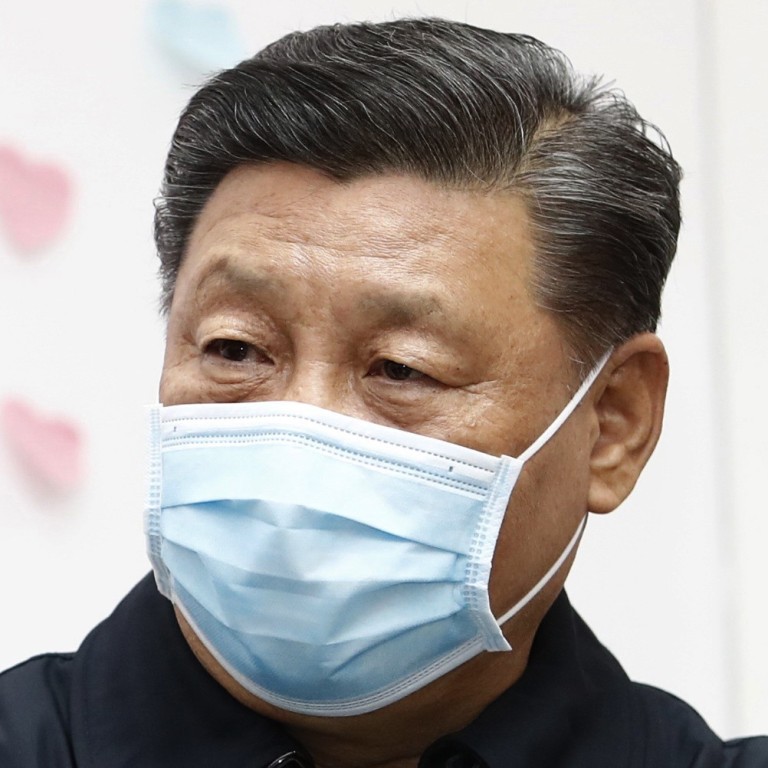
Chinese embassy raps ex-Singapore diplomat Bilahari Kausikan for ‘smearing’ China’s political system
- Bilahari Kausikan argues in op-ed that coronavirus crisis reflects Beijing’s dilemma of balancing political control and economic efficiency
- Chinese embassy condemns article as an attempt to smear and misinterpret China’s politics and leadership
Bilahari Kausikan, who retired as permanent secretary of the Singapore Foreign Affairs Ministry in 2013, described China’s handling of the crisis as a consequence of its Leninist value system, where a vanguard party has absolute control of state and society.
He said this system meant Beijing had the political will to order a lockdown of the epicentre of the Covid-19 contagion – Hubei province – and to build new hospitals rapidly, but had also caused reluctance among lower officials to sound the alarm to their higher-ups as the virus spread.
The Chinese embassy, in a post on its Facebook page on Tuesday night, characterised Bilahari’s commentary as a bid to smear and misinterpret China’s politics and leadership, likening it to the “stereotype cliché of Western anti-China voices”.
“At the difficult periods when Chinese people are making enormous efforts and sacrifices to fight the outbreak of the novel coronavirus pneumonia, the sense of justice of the author to ideologically denigrate China and sell his long-held prejudice and even hostility towards China has to be questioned,” said the statement, which was attributed to the embassy spokesperson.
The embassy’s response comes as China’s top diplomats fend off criticisms of Beijing’s handling of the outbreak, which has since infected more than 80,000 and killed more than 2,700 people worldwide. While the rate of new infections is slowing in China, a surge of cases in countries such as Italy, Iran and South Korea have fuelled fears of a pandemic.
The commentary by Bilahari, who is chairman of the National University of Singapore’s Middle East Institute, was recently published in This Week in Asia. It originally appeared on the website of Canadian international affairs magazine Global Brief and was later picked up by Singapore’s The Straits Times.
In his piece, Bilahari pointed out that the CCP was still “broadly popular” for improving the lives of hundreds of millions of Chinese and was an “extremely adaptive organisation”. But these were times of internal and external uncertainty, he said, and the CCP was approaching an “inflection point” that could lead to black swans – unpredictable events with potentially severe consequences.
China hits back at ‘coronavirus overreaction’ with travel warning for US
The embassy’s statement slammed Bilahari’s points as being “logically self-contradictory”, for acknowledging China’s achievements while criticising the political and leadership system that had given rise to them.
“Facts have proved and will continue to prove that nothing can derogate the advantages of the socialism with Chinese characteristics.”
Approached for his response, Bilahari, who is outspoken on social media on domestic and foreign affairs issues, replied: “What else could they say?”
All Chinese diplomats had to respond to Xi’s instructions to assert China’s narrative on the epidemic, he said, adding that the embassy did not address “a single substantive point” of his op-ed.
“Instead, they raise arguments against points I did not make, which is quite typical. It is not something I can take seriously,” he said in an email.
The embassy’s Facebook post has since garnered more than 150 likes, including one from Bilahari himself.
The former diplomat is known for giving hawkish views of China at public lectures in Singapore and overseas. For example, two years ago in a keynote speech at a conference on Chinese public diplomacy, he warned Singaporeans to be aware of Beijing’s covert “influence operations”.
Then, Chinese ambassador to Singapore Hong Xiaoyong issued a rebuttal, saying that Bilahari was presenting “false choices” and that his speech was “misleading others into misunderstanding China”.

